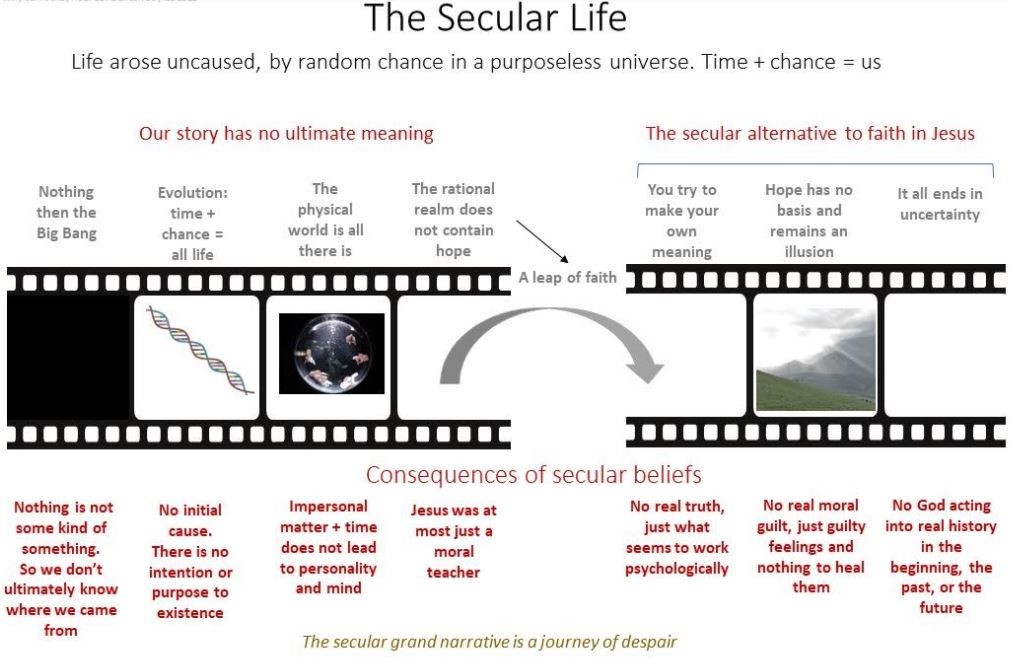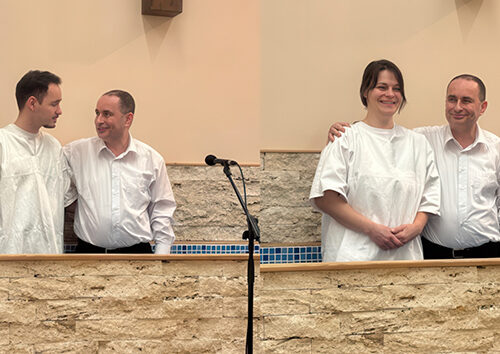24 January 2023| Shrewsbury, UK [Duncan Bayliss]
Why can’t they hear us?
For a long time, it has seemed as though much of European society is unable to hear what Adventists are saying. Because most of our nations have been on a journey towards secularism, we can no longer assume that those we mingle and connect with have a basic understanding of the Christian worldview. If that’s the case, then we cannot expect to quickly turn everyday ordinary conversations into deeply spiritual ones about the particular truths Adventism emphasises. Instead, we have to go back to fundamental basic questions such as whether God exists, what truth is, and who I am.
My question ‘Why can’t they hear us?’ is an attempt to set out the dimensions of the challenge and what we can do to respond more effectively.

Secularism is a philosophy of despair.
The secular story of life is a journey of despair. Secular people typically attempt to live as though the spiritual dimension of existence is not there, with ultimately devastating consequences.

In contrast, we can offer hope instead of despair, but for people to engage with what Jesus offers them, we need to build up the credibility of belief in God and in the reliability of scripture. That means, for example, establishing the Bible as real history and reliable communication from God. It also means defending belief in God as Creator rather than belief in evolution. That process of laying the foundation for people to hear and understand the gospel can be called pre-evangelism, and we need to take it much more seriously.
When we do this, we can enable secular people to begin a journey of discovery of faith in Jesus. It is a journey built on credible evidence rather than a leap in the dark away from the world of verifiable facts and science.
The process of engaging more effectively with pre-evangelism is a journey of discovery for many Adventists too. It takes us to the heart of truth and the way to discover it. That journey can be a blessing to those who engage in it, strengthening their own faith as they seek to explain it better to others, and it helps young people in church resist the pull of secularism and choose faith in Jesus as Lord and Saviour rather than turning their backs and walking away.

The aims of pre-evangelism can be summed up as follows:
To challenge the secular story of life and show it for what it is: a journey of despair.
To challenge the objections that secular people have to the Christian faith.
To explore where Christian and secular worldviews differ.
To lay a foundation for secular people to make sense of Christianity by:
- building trust in the reliability of scripture
- showing the credibility of belief in God as Creator
- showing the credibility of belief in Jesus as a real historical person and God in human form, resurrected and alive and active in the lives of all who seek him
To explore the basis of hope within Christian thinking.
To invite and enable secular people to respond to what we share and begin a journey of discovery of faith in Jesus.
In other words, we should not assume that secular people have a basic Christian worldview or understand what Christianity is about, but we should start from the basics when discussing our faith so that they have a better opportunity to respond to Jesus’ offer of eternal life.
To discover more about ‘pre-evangelism and why it matters in Europe’, read more ‘here’.
Duncan Bayliss is a freelance writer from Shrewsbury, UK, and the author of ‘The Possibility of Belief’, which shows how Christian faith is reasonable and leads to knowing God, peace of mind and hope.
[Photos: Feature Image & Cross of Christ – Shutterstock. Duck picture: Alex Lauzon -Unsplash]



